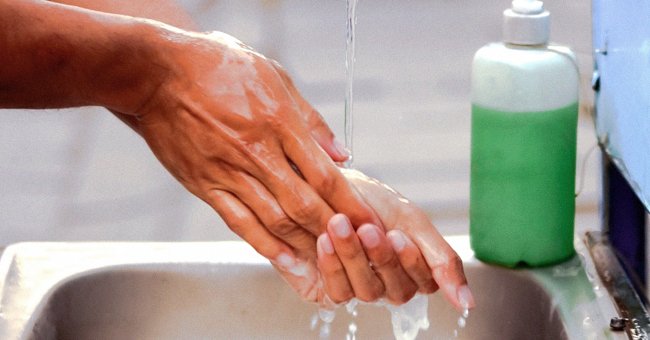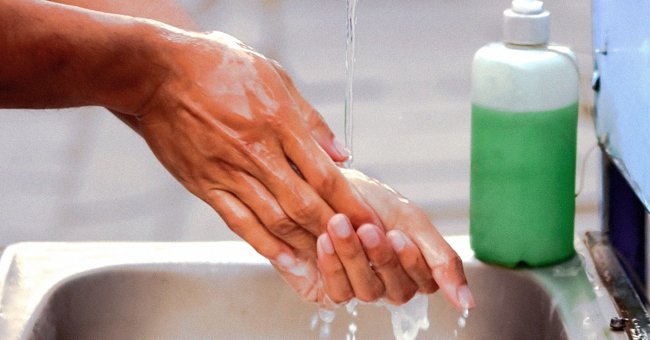
Woman Was Forced to Wash Her Hands Nearly 20 Times a Day at Work
A bakery worker who developed a chronic skin condition after being forced to wash her hands nearly 20 times at work won £50,000 compensation from her employer.
Amidst the uncertainty in this pandemic, people are more aware of proper sanitation practices and want to steer clear of possible infections.
As such, restaurants and bakeries take extra precautions in keeping their food clean. However, a production line worker at Speedibake in West Yorkshire, UK, went as far as washing her hands nearly 20 times a day to satisfy her employer.

A person washing their hands well with soap. | Source: pxhere.com
Susan Robinson worked to produce hundreds of thousands of frozen mince pies for big supermarkets. After following excessive protocol, blisters began appearing on her hands, as well as some wounds.
Despite asking for better hand protection measures, her employer turned a blind eye. After six months, the 59-year-old's hands became red and itchy until eventually developing dermatitis eczema from chemical exposure. She shared:
"My hands were incredibly painful and sore. I had a particularly bad flare up, and that's when I knew I had to take it further."
Robinson continued to ask for better hand protection and presented solutions, such as thinner gloves or barrier creams. Still, her employer ignored the woman and only focused on the safety of the food products.
Luckily, there are already vaccine brands that can protect people against the virus until each country reaches herd immunity.
As things worsened, Robinson turned to the Bakers, Food and Allied Workers' Union (BFAWU) and Thompson's Solicitors for help on the matter.
The two organizations helped Robinson fight for workers' right to safety as well, and eventually, she won £50,000 in damages from her employer.
A few months later, the Speedibake factory she worked in closed down due to a fire outbreak. Although most staff transferred to a different Speedibake factory location, Robinson was not included because of her dispute with the company. According to Sarah Woolley of BFAWU:
"Sadly, cases like Susan's are not uncommon, and profit overrode a worker's health. Speedibake should be ashamed of itself for failing to deal with a terrible situation for Susan [...]."
Meanwhile, a Speedibake representative said, "As food producers, we have strict hygiene standards that we have to maintain, which presented challenges in this particular case due to the essential hand cleansing and sanitizing products that our employees need to use."
With COVID-19 still around, people should do their part in minimizing risks to contract the virus, as well as businesses. While it is true that safety is of utmost importance, employers should still take care of their employees' welfare.
Howard Mavity, a partner in the law firm Fisher & Phillips LLP, advised employers to pay attention to the employees' concerns, especially when it comes to safety.
Luckily, there are already vaccine brands that can protect people against the virus until each country reaches herd immunity, such as Pfizer, Moderna, and AstraZeneca.
The information in this article is not intended or implied to be a substitute for professional medical advice, diagnosis or treatment. All content, including text, and images contained on news.AmoMama.com, or available through news.AmoMama.com is for general information purposes only. news.AmoMama.com does not take responsibility for any action taken as a result of reading this article. Before undertaking any course of treatment please consult with your healthcare provider.
